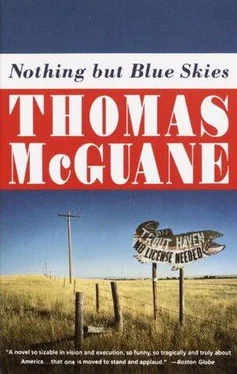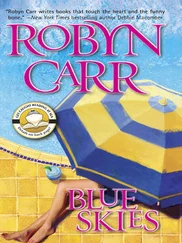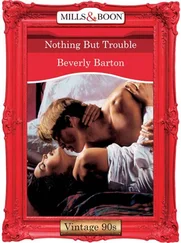“Naturally, our boy seduces everybody and that had its appeal, though anyone with a room-temperature IQ would quickly get bored with the oral business under the desk. It was one of the most ineffective ads for office furniture I’ve ever sat through.” Frank shrank as though dashed with cold water. “But the scene that seems very important to these movies is the festive ejaculation. This scene is shot like a Disney nature film, in slow motion. We get the holiday droplets flying through the air with frequent cutaways to the ‘businessman.’ Our man is reared back, howling like a baboon and apparently trying to uproot his own member like a stoop worker on an Alabama row-crop farm. This does not look too bright.” Frank sheepishly stole a glance around the room; the show was a big hit. “Meanwhile, the starlet seems to have forgotten she’s in a movie. She scoots around on the queen-size, trying to avoid the barrage.” An appliance repairman with the dead-giveaway blond bangs of a born-again Christian came to their table. The script on his shirt read “Rance.”
“Ma’am,” he said from a smoldering face.
“Don’t tell me you’re the director,” cried June.
“Ma’am, I’m gonna tell Holiday Inn, nice folks can’t eat in this place if you’re here.”
“They’re crazy about me,” said June. “They’ll throw out the nice folks. Might try Days Inn.”
The waitress arrived as Rance drifted back sullenly to his table, right after he suggested that if June hadn’t been a woman, something very dire would have awaited her. June turned to her breakfast with delight. “I must be his first dirty old broad.”
“Must be,” said Frank.
June spread jam on her toast. She held it up admiringly. “Imagine living such a sheltered life,” she mused. “I think Holiday Inns sustain those illusions. There’s never any discord in the Holiday Inn.”
They ate with reflective gazes for a time. They were both thinking. Rance got up after a bit, shoving back his chair noisily so as to suggest that he had never had waffles under such circumstances before. June blew him a pouty kiss and went back to contemplatively eating. In this eternal ambience, with its perfect standardization, exemplary and American, Frank felt he could age quietly or be part of a trend. The pressure was more on time itself than it was on him. This thought alone took some of the pressure off.
He tried to make it through an entire day at the office. Eileen had him stacked up with calls to return and letters to respond to. He had to sort out gas line easements across the ranch. The city was asking him to abandon an old head gate that was now on the grounds of a small park. There was a request from the doctors to confirm that they could always lease at their current rate, which Frank responded to with a number of built-in slides for inflation, cost of living, exhausted depreciation schedules and the offer to raise the rent at once. There was a call from Phil to say that he and Smokie were going to the movies, if he wanted to join them. No, he thought. The building that had housed Gracie’s old lunch-counter restaurant, Amazing Grease, was being converted to a light-truck repair shop and the shop’s proprietor was making an offer to purchase it. Again, Frank declined. He sent the animal shelter written permission to exercise animals on the ranch and he tried to return his brother Mike’s five telephone calls but failed to find him in. He prorated Boyd Jarrell’s last paycheck and asked Eileen to call him and find out what he wanted done with his tax and workmen’s comp withholdings. Eileen returned to say that Boyd was out of town but that the wife wanted the money forwarded to her. “Okay,” Frank said, “do that.” He felt quite absent. He was thinking about his house. He was thinking he could barely picture it and didn’t want to live there anymore. Once a poetic edifice, it had become an annoying heap.
He recognized that he was going to have to move his mind more into the foreground and out of the world of regrets and ambiguities. The desk was piled high with reminders of neglect. He couldn’t run a business this way. “You can’t run a business this way,” he said aloud. He thought he heard Eileen say “Amen,” but he knew very well she didn’t have that sort of wit. He must have imagined it. It did seem, though, that he had heard an “amen.”
He met Mike at a quarter of twelve at McDonald’s for a quick lunch to discuss something on Mike’s mind. It was already crowded at this old fast food place, with its amusement park shapes and colors now well battered by Montana weather. Even the fiberglass animals and carousel horses looked like they’d come up the trail with the longhorns. Inside, the stainless steel handrail in front of the counter was bowed out toward the condiment and napkin counter by the pressure of tens of thousands of buttocks.
This was Mike’s favorite restaurant. He prided himself on being a prosperous professional who had never developed an interest in the good life: “I live like a dog and I eat like a dog.” This wasn’t quite true, and in Mike’s identification with ordinary people there was a kind of dandyism. They carried their trays to a small table in front of a window where they could see traffic and the pretty farmhouses across the road that had been overtaken by the strip; their deep and shady porches now faced a blazing modern highway. When they sat down, Frank unwrapped his cheeseburger and tipped the cardboard container of french fries on its side.
“My doctor friends say you’re trying to gouge them on the office building.” Mike made this statement with a crazy grin.
“Cheapskates.”
“You got that right. But again, they’re my friends.”
“Why don’t they leave?”
“I don’t know.”
Mike rarely asked Frank to come to McDonald’s. Meeting there for lunch almost always meant something, since even by Mike’s standards the dining was not the issue. When their mother had been in the nursing home, after the fiasco in Fort Myers, she had gone rapidly downhill. Frank tried having her at home and so did Mike, but she no longer knew where she was and would prowl about at all hours. Once she set fire to Mike’s house trying to cook on the gas stove at three A.M. One of Mike’s children found her, nightgown on fire, and Mike had to spray her with a fire extinguisher. “Go ahead, kill me!” she had cried.
Adding to their problems was the fact that she had never liked them as children. She had been a famous local beauty and children had never fit her plans. She had associated Mike and Frank with her decline throughout her life, so that by the time she was old and infirm she openly disliked them. But she got pneumonia from the fire extinguisher and nearly died. So they put her back in the home, which was pleasant but inhabited almost entirely by what looked to Frank like zombies, who sat and stared or held playing cards but didn’t play them or who waited for the meal bells or simply watched television with perfect vacancy or took on small tasks that didn’t need doing, like curtain arrangement or extra dusting.
Frank had loved his mother but got nothing much in return, and even Mike, who hadn’t cared, understood that his mother’s situation was not one to be desired. She reached the point that she no longer got out of bed, then no longer ate and was on life support equipment. This went on for a good while; they visited regularly even though most of the time she didn’t know they were there, and when she did, she was unpleasantly reminded of how little she liked them. Finally, she failed to return to consciousness altogether. After a couple of months, Mike called Frank with his decision. He had spoken to the doctor. An absence could be arranged if Mike and Frank wished to remove her life support system.
Читать дальше












